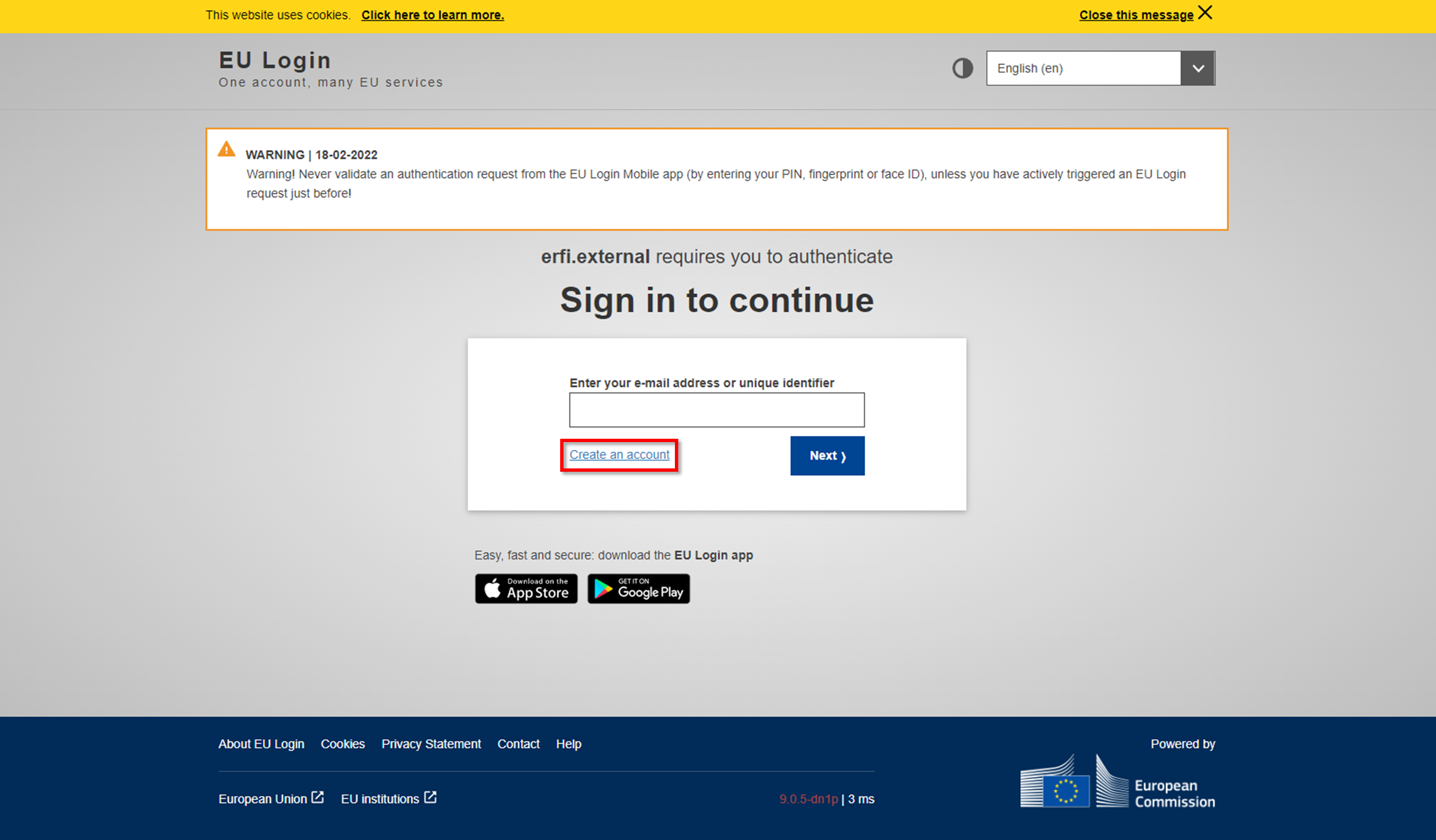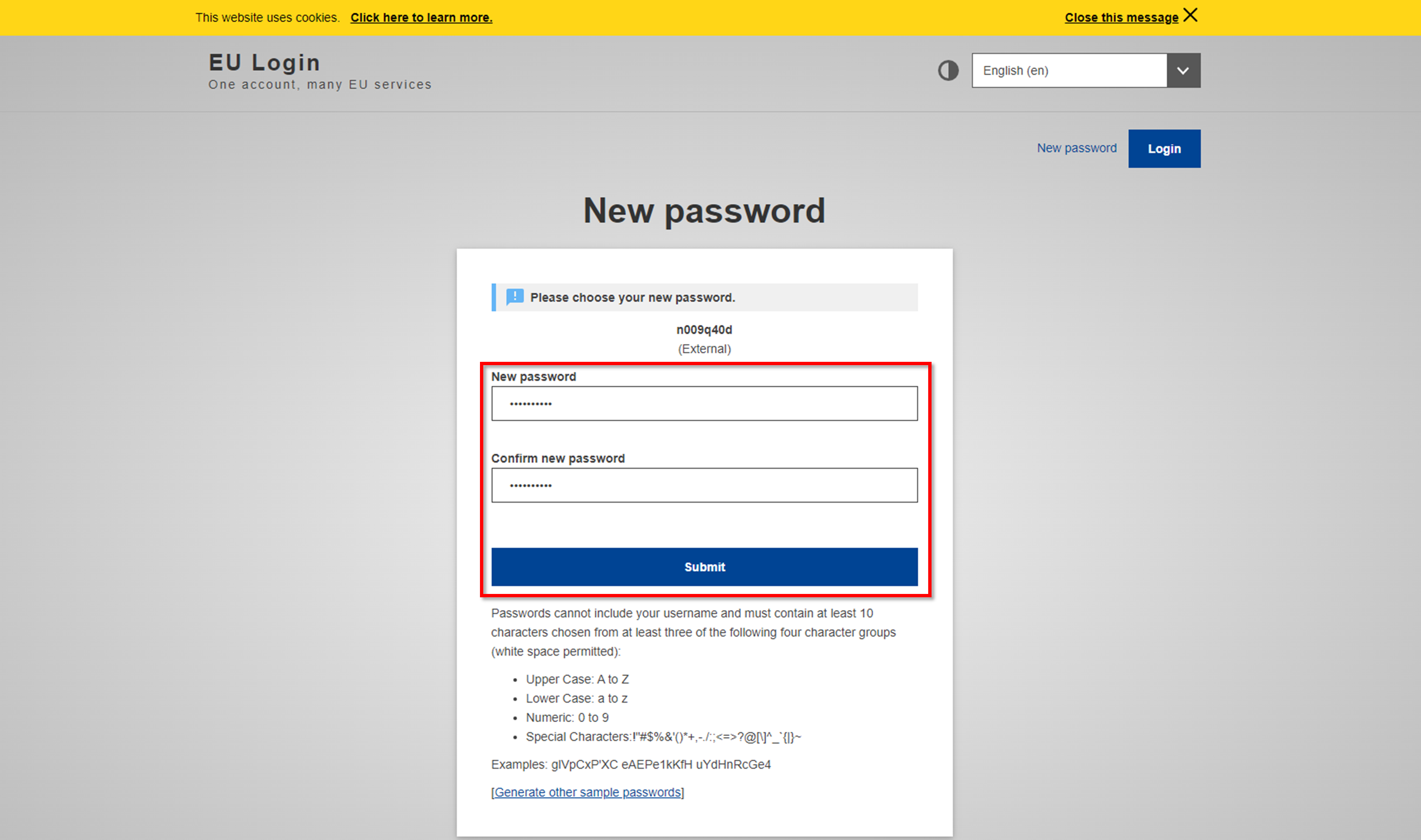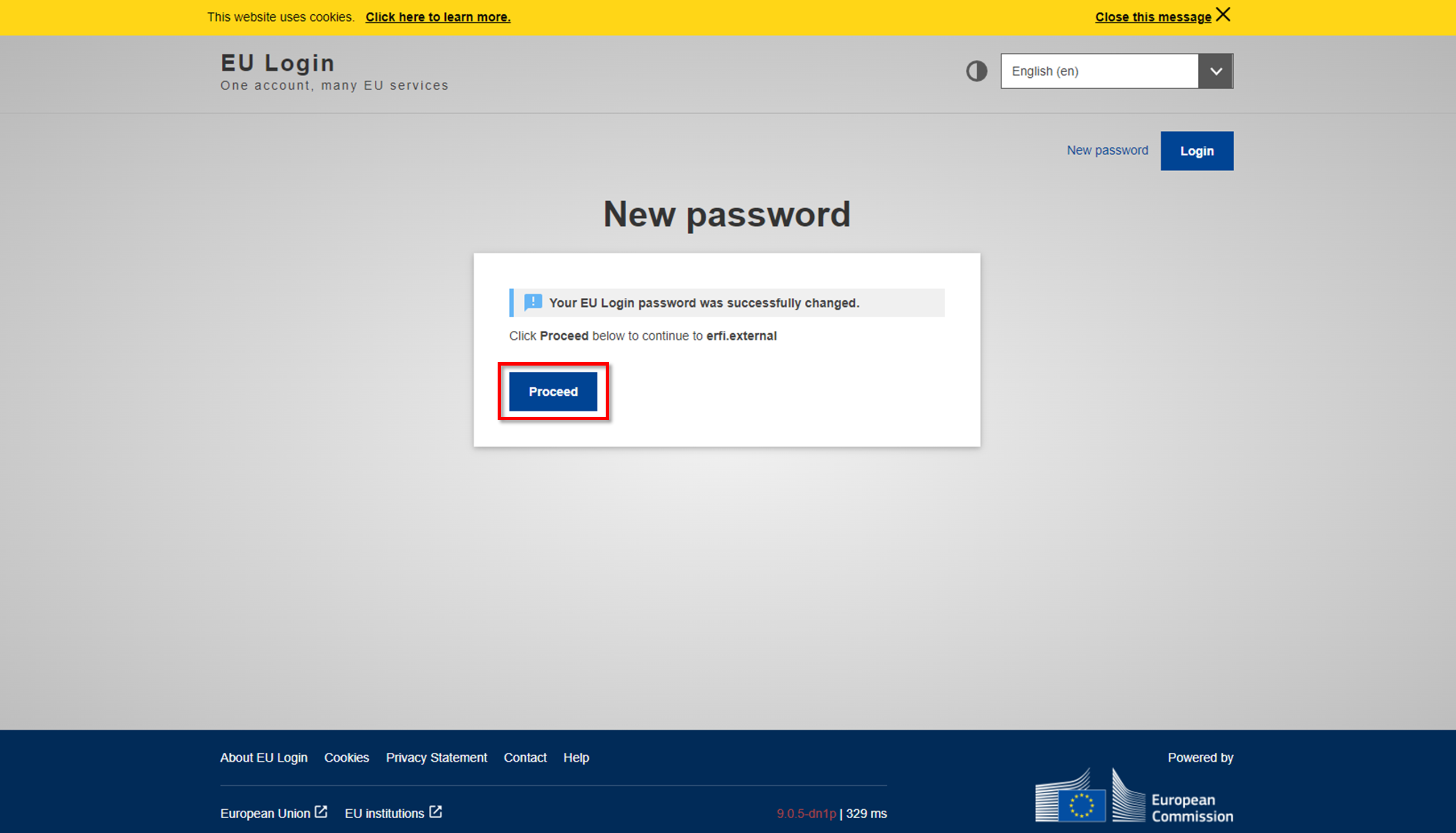Page History
Versions Compared
Key
- This line was added.
- This line was removed.
- Formatting was changed.
| Panel | ||||||||||||
|---|---|---|---|---|---|---|---|---|---|---|---|---|
|
Creating an EU Login account
EU Login is the European Commission's user authentication service. It allows authorised users to access a wide range of Commission web services, such as eRFI. Unless you already have one, you must create an EU Login account to access the eRFI application. The full user guide and Frequently Asked Questions regarding EU Login can be found here: https://webgate.ec.europa.eu/cas/help.html.
To create an EU Login account, click on the button
| Status | ||||
|---|---|---|---|---|
|

Fill in your contact details and click
| Status | ||||||
|---|---|---|---|---|---|---|
|
To complete the registration process, open the email that is sent to your email account and click on the link provided.

Set a strong password and click on the button
| Status | ||||||
|---|---|---|---|---|---|---|
|

A success message will appear. Click on the button
| Status | ||||
|---|---|---|---|---|
|

Accessing eRFI
You have now created an EU Login account. To access eRFI, click on the button
| Status | ||||
|---|---|---|---|---|
|
Once you successfully authenticate, you will be redirected to Step 1: Legal basis.
Account creation issues
A common issue users have is owning multiple accounts. Maybe you have a personal as well as a professional email account. Maybe you have switched jobs and had previously received an RFI while working at each organisation.
If you access the questions with one professional email account, it is essential to always use the same log in information to access the relevant questions.
Here are some common scenarios and their solutions:
The email address used with EU Login should match the one used in the Principal Addressee eRFI invitation.
Let's assume that John Doe has two email addresses, John@personal.me and John@professional.com, and that both email addresses have been registered with EU Login in the past. John received an eRFI invitation email from the Principal Addressee with an access link at his email address John@professional.com. When John clicks the access link, he must login with John@professional.com at the EU Login portal and the corresponding password. If John tries to log in using his personal email address, his access to the RFI will be denied, even if the EU Login email and password were correct. The Principal Addressee who sent the invitation will receive a request to access the RFI. The RFI can still be accessed after the request is approved.
You can forward the invitation email with the access link to your colleagues.
If there is no Principal Addressee yet, then the first colleague accessing will be able to log in and you will receive a notification to inform you that someone else became principal addressee.
If a Principal Addressee is already defined, then a request to become collaborator will be sent when someone else tries to access. The principal addressee Principal Addressee will receive a notification and will have the possibility to accept or reject the request.
- Powered by Atlassian Confluence 7.19.30
- Printed by Atlassian Confluence 7.19.30
- Report a bug
- Atlassian News